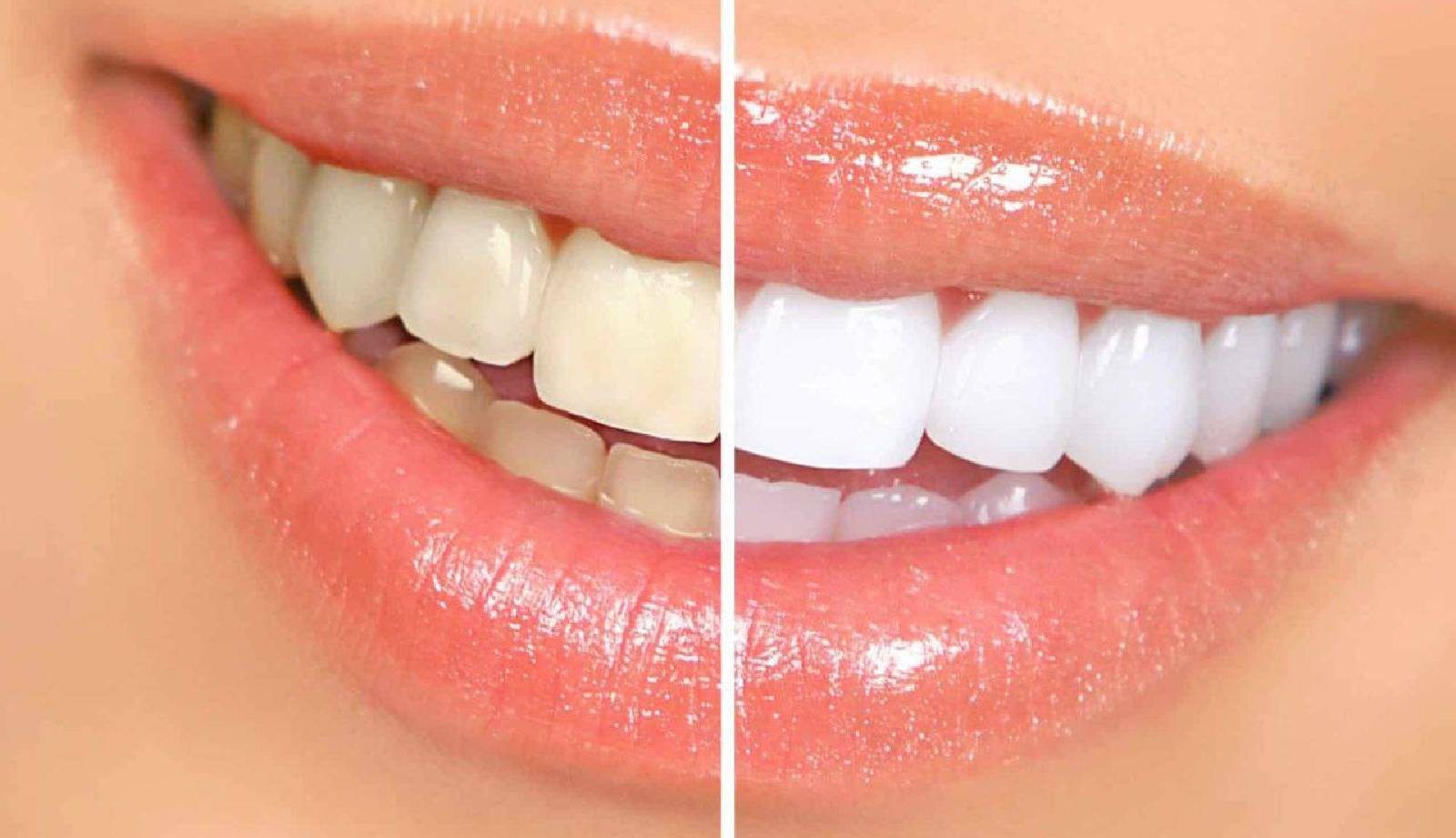
Is Teeth Whitening Safe? A Complete Guide to What You Need to Know
A bright, white smile is often seen as a symbol of health, beauty, and confidence. With the increasing popularity of aesthetic dentistry, teeth whitening has become one of the most requested dental procedures globally including right here in Trivandrum.
But amidst the popularity, one question lingers in the minds of many patients: “Is teeth whitening safe?
This blog dives deep into the science, techniques, risks, and safety of teeth whitening procedures so you can make an informed decision before choosing to brighten your smile.
Understanding Teeth Discoloration: Why Do Teeth Stain?Before understanding how whitening works, it’s important to know why teeth lose their brightness in the first place. There are two primary types of discoloration:
-
1. Extrinsic Stains
These are surface stains caused by external factors such as:-
Coffee, tea, red wine, cola
-
Smoking or chewing tobacco
-
Poor oral hygiene
-
-
2. Intrinsic Stains
These occur within the tooth structure and may be due to:-
Aging (enamel thinning and dentin darkening)
-
Trauma or internal bleeding
-
Fluorosis or antibiotic use during tooth development
-
While extrinsic stains respond well to whitening, intrinsic discoloration may need specialized treatments like veneers or crowns.
What is Teeth Whitening?Teeth whitening (also called tooth bleaching) refers to the use of hydrogen peroxide or carbamide peroxide-based agents to lighten the color of your teeth. These agents penetrate the enamel and break down stain-causing molecules without damaging the tooth structure.
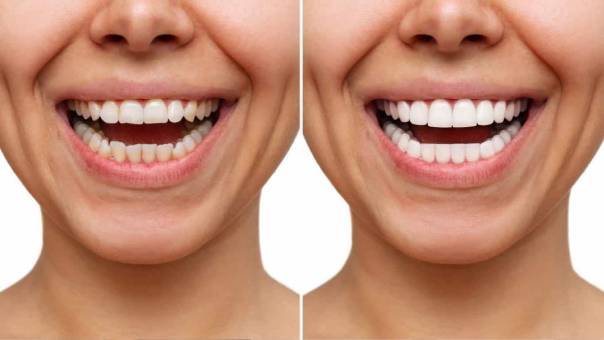
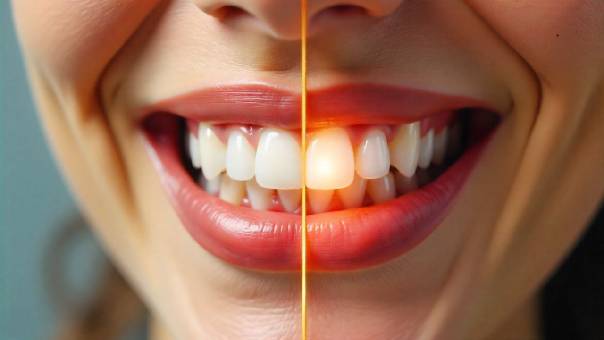
There are three main types of whitening options:
In-Clinic Professional WhiteningPerformed by a dentist using high-concentration gels (15–40% hydrogen peroxide), often activated by light or laser.
-
Fast and effective
-
Monitored for safety
-
Visible results in a single sitting
Custom trays with lower-concentration peroxide used over 1–2 weeks.
-
Safe and gradual
-
Convenient home use
-
Custom fit ensures uniform whitening
Whitening strips, gels, toothpaste, or LED kits available online or at pharmacies.
-
Affordable
-
Lower efficacy
-
Higher risk of misuse
-
No expert supervision
Yes When Done Correctly and Professionally
Teeth whitening is clinically proven to be safe when carried out under the supervision of a qualified dental professional. At Trivandrum Dental Specialists’ Group, we follow protocols that minimize side effects and ensure optimal results with patient safety as our top priority.
However, improper or overuse of whitening agents, especially unsupervised at-home kits or DIY remedies, can damage your teeth and gums.
Common Myths vs. Facts About Whitening Safety| Myth | Fact |
|---|---|
| Whitening damages enamel | Professional whitening does not damage enamel. It breaks down stains only. |
| Whitening causes permanent sensitivity | Any sensitivity is temporary and usually resolves in 24–48 hours. |
| Whitening results are instant and permanent | Whitening may need touch-ups every 6–12 months depending on lifestyle habits. |
| Home remedies (like lemon or baking soda) are safer | These can erode enamel and harm gums. They are not dentist-approved. |
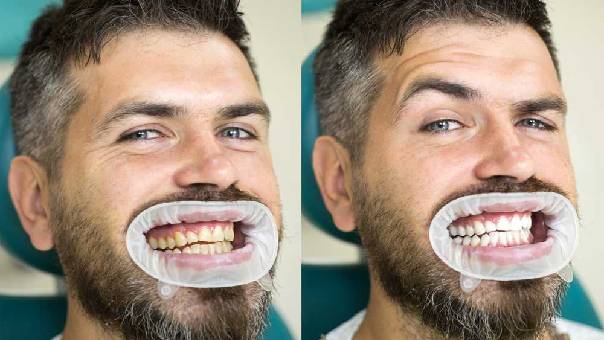
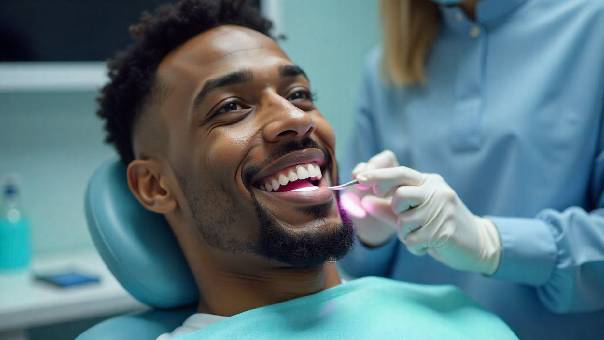
While professional whitening is generally safe, some people may experience:
-
1. Tooth Sensitivity
This is the most common side effect, especially in people with thin enamel or exposed dentin. Dentists often recommend desensitizing gels or toothpastes before and after treatment. -
2. Gum Irritation
If whitening gel touches the gums, it may cause a burning sensation or temporary inflammation. Protective barriers are used during in-clinic procedures to avoid this. -
3. Uneven Results
Teeth with dental work like crowns, fillings, or veneers do not whiten, which may cause shade mismatch. A dentist can help adjust or replace restorations to match.
Teeth whitening may not be suitable for:
-
Children under 16 (as their teeth and pulp chambers are still developing)
-
Pregnant or breastfeeding women
-
People with gum disease, cavities, or worn enamel
-
Those allergic to peroxide-based agents
-
Individuals with extensive restorations (crowns/bridges/veneers) on visible teeth
In such cases, a dentist may recommend alternative aesthetic treatments.
Why Professional Supervision MattersHere’s why you should always consult a dentist before whitening:
-
Proper diagnosis: The dentist identifies the type of staining and recommends the most effective method.
-
Customized treatment: A plan tailored to your enamel thickness, tooth sensitivity, and expectations.
-
Controlled application: Avoids excessive bleaching, gum burns, and enamel damage.
-
Post-care advice: Ensures long-lasting results and minimizes sensitivity.
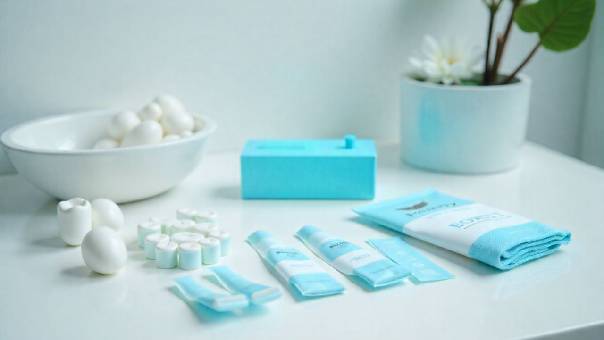
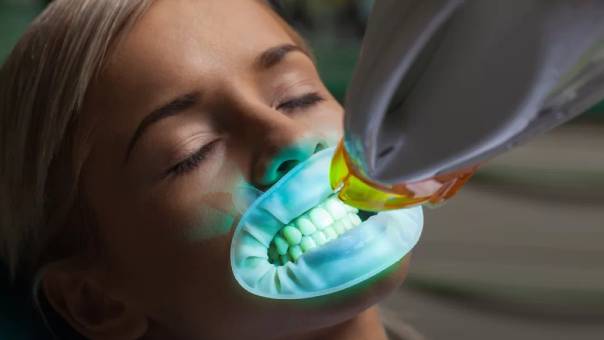
At TDSG, we offer a range of safe, evidence-based whitening solutions:
-
In-Office Whitening (Zoom Whitening)
A one-hour session that brightens teeth by up to 6–8 shades. Light-activated gel ensures deeper stain removal with minimal discomfort. -
Take-Home Whitening Kits
Customized trays and dentist-prescribed whitening gel for gradual, safe at-home use. Great for maintaining in-office results or those with time constraints. -
Combination Whitening
In-office + take-home kit for the most lasting and noticeable results.
Our team ensures complete evaluation, safety checks, and post-whitening instructions so that you get the brightest smile safely.
How Long Does Whitening Last?Whitening isn’t permanent, but it can last 6 months to 2 years depending on:
-
Oral hygiene habits
-
Smoking or tobacco use
-
Dietary choices (tea, coffee, red wine)
-
Enamel thickness and age
Here are a few tips to make your whitening results last longer:
-
Avoid stain-causing foods and drinks (or use a straw for liquids)
-
Rinse your mouth after eating
-
Brush twice daily with a non-abrasive toothpaste
-
Visit your dentist regularly for cleanings
-
Quit smoking or tobacco for oral and overall health
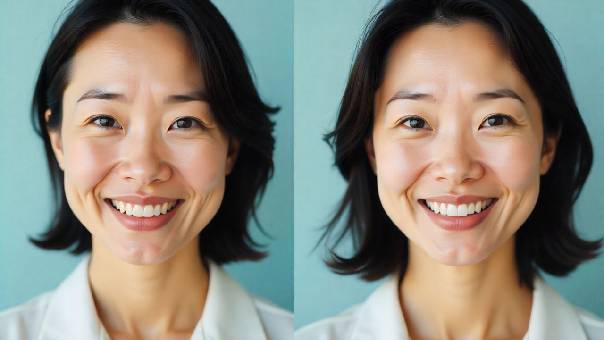
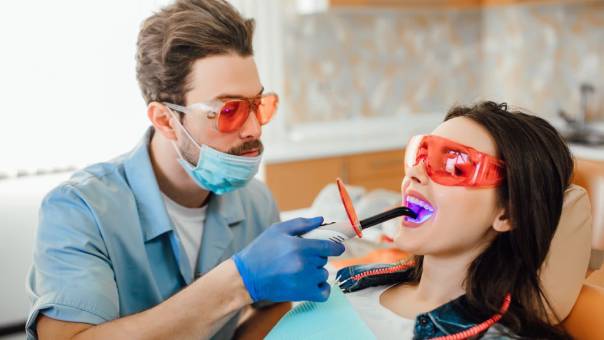
Will teeth whitening work on all teeth?
No. It’s effective on natural teeth only. Crowns,
veneers, or fillings won’t change color.
Can I whiten my teeth if I have cavities?
Cavities need to be treated before whitening to
avoid irritation or nerve damage.
Can sensitive teeth be whitened?
Yes, with low-concentration gels, desensitizers,
and under dentist supervision.
Are whitening toothpastes effective?
They help with surface stains but do not change
intrinsic tooth color. Use them as a
maintenance tool, not a primary treatment.
Teeth whitening is safe, effective, and incredibly rewarding when done properly. At Trivandrum Dental Specialists’ Group, we provide scientifically backed, customized whitening treatments with your comfort and safety in mind.
So if you’re tired of hiding your smile in photos or holding back in conversations, it might be time to schedule your whitening consultation.
